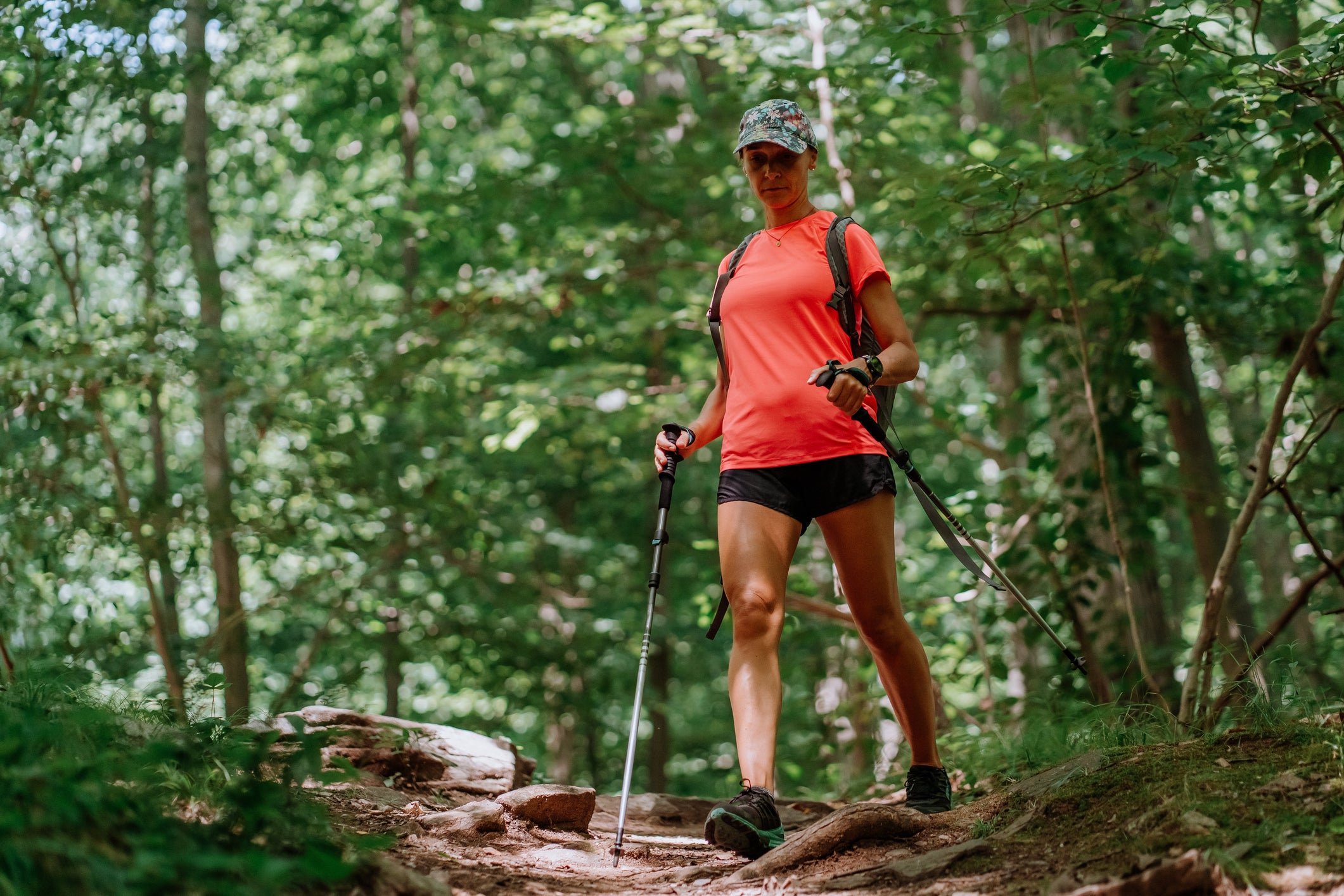How To Pace Your First 100-Miler

Woman walking on trail
I am planning on running my first 100-mile race this summer, but the farthest I’ve run is 50 miles. Most of what I have read is geared towards just completing the distance, but I am looking to be more competitive. How do I pace myself to finish as fast as possible?
—Peter Hogg, Livonia, MI
There is no doubt that pacing a 100-mile foot race is a difficult chore, even for the experienced. At the risk of injury or burnout, it’s simply not prudent to run the complete distance in training prior to the event. So like many before you, you are left to make an educated guess at a pacing strategy. Here’s advice for pacing a 100-miler.
Endurance-running legend and coach Karl Metlzer likens the 100-mile distance to three back-to-back 50-milers and says, “If you have a time goal of 24 hours, the first half of an ‘equal,’ meaning both halves are of comparable difficulty, course should be roughly [45% of your total time] 11-ish hours.” The basic guideline here is that the first half of the race will almost always be faster than the second half. Don’t expect to even (let alone negative) split your first 100. It ain’t happening. Using this principle, a runner expecting to finish in 30 hours—on a good day—could plan to run 13.5 hours for the first half of the race.
Use this “positive-split” rule of thumb and analyze previous course times/splits to develop a pacing strategy. Once a race starts, though, things rarely go as planned. As you gain experience, you become more in tune with what effort level you can lay out early, and still finish strong.
I tell every first-time 100-mile runner that, no matter your starting pace, you will experience a massive low point. Your mind will turn to quitting, everything will hurt and you wonder why the hell you ever wanted to do this to begin with. It’s vital that you simply fight through it. Acknowledge it and move forward, relentlessly. For every low, there is an equal high—like the finish line!
David Roche partners with runners of all abilities through his coaching service, Some Work, All Play. With Megan Roche, M.D., he hosts the Some Work, All Play podcast on running (and other things), and they wrote a book called The Happy Runner.